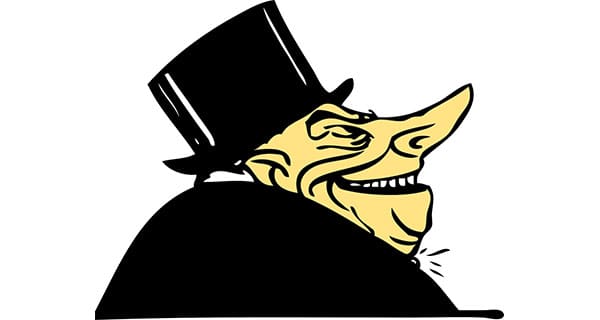 Have you ever felt like Scrooge?
Have you ever felt like Scrooge?
I have.
I went to the local production of The Christmas Carol and was thoroughly impressed. Often with great acting, the characters remind me of people who I’ve come into contact with. This was no different.
The script is set in the 1800s but could have easily taken place in modern times with some business owners I know. They’re so tight with their money that they see Christmas as a frustration, staff holidays an annoyance and family celebrations as an interruption of the cycle of business.
While these people are rare, they exist. And as a business owner, I’d be lying if I said I’ve never had a case of “Bah humbug” during some Christmases.
Christmas can be challenging if you own a business. We’re trying to get everything done for the year end of Dec. 31. Sometimes we have inventory that needs to be counted. We’re trying to hit targets and sales. We’re often working long hours, especially if we’re in retail, restaurant or service.
Customers are demanding and our staff want time off.
And there’s that that tricky concept of a Christmas bonus. We feel guilty if we can’t afford one.
On top of everything, we have pressure to buy Christmas presents for the ones we love.
As business owners, some years we just want to keep our heads down until January and hope that the whole season goes away … bah humbug!
So what should we do if we have the Bah humbugs?
It’s actually more serious than a man cold. It can last longer and when it settles in your soul, it can do lifelong damage. A bad man cold can take down a business leader in 24 hours, but we men are over it in 21 days at the most. The Bah humbugs usually take longer to get rooted and can last as long as a lifetime! If we’re lucky, we can shake a case after one season, but not usually.
It’s a business leader’s disease that manifests itself at Christmas but generally gets entrenched in a person in late spring or early summer and lasts until Christmas. Brought on by overwork and lack of holidays, the virus feeds on our natural need for someone to feel pity for us, because of the energy and effort we’ve committed to the business. Bah humbug rears its ugly face early in summer, when employees who we don’t think deserve a holiday decide that labour laws are written to protect them and insist on their two weeks.
Poor-me disease is related to Bah humbug but differs because Poor-me can be healed with increased profits. The severity of Bah humbug, on the other hand, can increase when, as leaders, we focus only on driving profits in an already profitable business and forget about the humanity of the business, our customers and our staff. We see them only with their hands out for payroll or to get something more from us.
Bah humbug can be a real problem when we forget that the reason for our success as a business is usually not just us as leaders. When it sets in, we neglect to thank our staff for the good they do. We forget all the people who enabled us to be successful – our parents, our first employers, our partners. We forget the breaks we had, being at the right place at the right time.
We don’t appreciate enough the blessings our business creates in the community through its contributions of wages, jobs and donations. We fail to appreciate that we’re making a good living doing what we love.
Bah humbug touches all of our lives at one point or another. However, when we take the time to count our blessings and appreciate how lucky we are, we can shake off those ill thoughts and work towards creating a culture in our company that celebrates the joy of Christmas all year long.
Troy Media columnist David Fuller, MBA, is a certified professional business coach and author who helps business leaders ensure that their companies are successful. David is author of the book Profit Yourself Healthy. Email [email protected].
The views, opinions and positions expressed by columnists and contributors are the author’s alone. They do not inherently or expressly reflect the views, opinions and/or positions of our publication.


